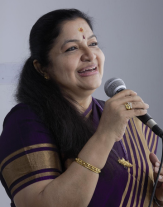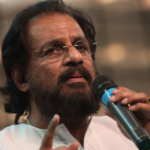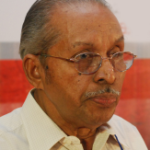K. S. Chithra (Krishnan Nair Shantakumari Chithra), often referred to as the “Nightingale of South India,” is one of India’s most iconic and prolific playback singers. Born on July 27, 1963, in Thiruvananthapuram, Kerala, Chithra is celebrated for her versatile voice and her ability to seamlessly transition between classical, devotional, and film music. Her contributions to Indian music, spanning multiple languages and decades, have earned her countless awards and the adoration of millions of fans.
Early Life and Musical Training
Chithra was born into a family with a deep-rooted love for music. Her father, Krishnan Nair, was a singer, and he played a pivotal role in fostering her interest in music from an early age. She began her formal music training in Carnatic music under the tutelage of K. Omanakutty, a well-known musician in Kerala. Chithra’s early grounding in classical music helped her build a solid foundation in voice control, pitch, and tonal clarity, which would later define her career as a playback singer.
She earned her bachelor’s degree in music from the University of Kerala and went on to complete a post-graduate degree in music. During her college years, Chithra participated in various music competitions and won several prizes, which brought her talents to the attention of established musicians.
Playback Singing Career
Chithra’s playback singing career began in the late 1970s, and her first breakthrough came when she was introduced to the legendary music director M. G. Radhakrishnan. She debuted as a playback singer in the 1979 Malayalam film Aattakalasam, but her major breakthrough came with the 1985 film Nokkanavu, where she sang the evergreen song “Manjal Prasadavum.”
Her voice, known for its emotive quality and versatility, quickly caught the attention of other renowned music directors like Ilaiyaraaja and A. R. Rahman. Over the years, Chithra became one of the most sought-after playback singers in the Indian film industry, with her work spanning multiple languages, including Malayalam, Tamil, Telugu, Kannada, Hindi, Bengali, and Oriya.


